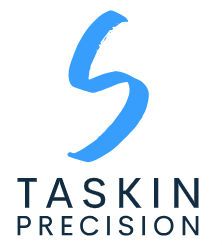Die Casting: A Cornerstone of Modern Manufacturing
Die casting has transformed the manufacturing industry by offering unparalleled precision and efficiency. This process involves injecting molten metal into molds under high pressure, producing intricate components with exceptional dimensional accuracy. Industries such as automotive, electronics, and aerospace heavily depend on die casting for large-scale production of complex parts.
In 2024, technological advancements are propelling die casting to new levels of innovation. Faster production cycles, eco-friendly initiatives, and solutions tailored to industry demands are redefining its potential. Its capability to create intricate shapes with minimal waste makes it a superior choice compared to alternatives like CNC machining or sand casting.
Key Highlights
- Unmatched Precision and Efficiency: Die casting is ideal for high-volume production, particularly in sectors like automotive, aerospace, and electronics.
- Minimal Waste and Cost Savings: The process reduces material waste and provides significant cost advantages while maintaining environmental sustainability.
- Technological Advancements: Automation and AI are driving improvements in speed, quality, and reliability.
- Focus on Sustainability: Manufacturers are adopting eco-friendly practices, including the use of recycled materials, to minimize environmental impact.
- Cost-Effectiveness: Die casting is more economical than CNC machining for large-scale production, though CNC machining is better for customization and small batches.
- Strength and Precision: Die casting excels in producing durable metal parts, whereas injection molding is better suited for lightweight plastic products.
- Versatility: Understanding the differences between die casting, sand casting, and 3D printing helps ensure the right manufacturing method is selected.
What is Die Casting?
Die casting is a manufacturing technique where molten metal is injected into reusable steel molds, known as dies, using high pressure. This process ensures precise, intricate details and is especially effective for non-ferrous metals like aluminum, zinc, and magnesium.
Evolving since its 19th-century inception, die casting is now a pillar of modern manufacturing. It delivers tight tolerances, excellent surface finishes, and the ability to produce complex shapes with minimal material waste. These attributes make die casting an essential process for industries requiring accuracy, efficiency, and reliability in high-volume production.
